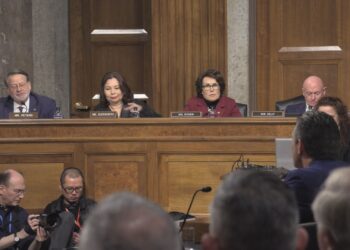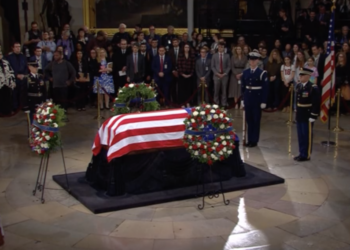WASHINGTON, D.C. – The Supreme Court heard a unique adoption case that could have far reaching implications for tribes and their sovereignty. This case focuses on a Native adoption case with a non-Native family, but it’s not as straightforward as that. Many said this case could impact centuries-old legal status of tribal sovereignty. Here’s some background on the case:
The Indian Child Welfare Act (ICWA) was put into law by congress to respond to concerns that Native children were being unnecessarily separated from their families and sent to boarding schools or placed in non-Native families. In this case the Supreme Court heard, a four-year-old child, only known to the court as YRJ is the focus of this case. YRJ is of Native ancestry but the Brackeen’s, who are a non-Native family, are fighting with the Navajo Nation to adopt her.
In the arguments, lawyers for the Brackeen’s argue that ICWA is unconstitutional because the law discriminates against Native children as well as non-Native families who want to adopt them because the law factors in race to determine where the child should be placed. Lawyers for the tribes told the justices that tribes are political entities, not racial groups.
Some are worried that if justices rule that tribal citizenship is based on race, ICWA could be struck down for violating equal protection rights of native children and non-Native adoptive families.
Protesters outside of the courthouse, who are in favor of keeping ICWA, are worried this ruling could do more than determine the fate of this four-year-old and other Native children in foster care.
“They’re potentially damaging to 200 years of legal precedent,” said Sarah Kastelicf, the Executive Director of National Indian Child Welfare Association. “It’s a direct attack on tribal sovereignty.”
For about 250 years, treaties and regulations helped tribes keep legal status as sovereign nations. Depending on how the Court rules in this case, Native people outside the courthouse said they’re worried it could undermine much more than this adoption issue but undermine tribal sovereignty itself.
The lawyers for the Brackeen’s argued in court that this case won’t impact other aspects of tribal sovereignty, but Justices fired off hypotheticals and questions about how their challenge could overlap other areas like tribal health.
The Court should release their ruling on this case by summer 2023.















